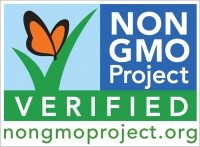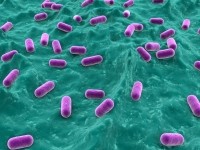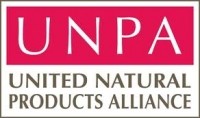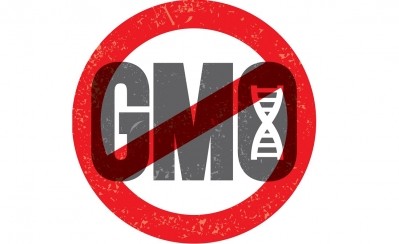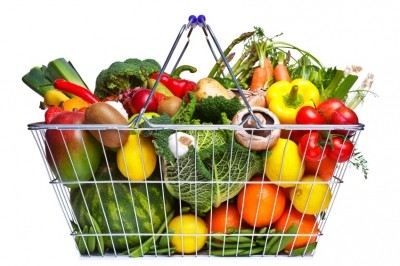Going non-GMO in dietary supplements: ‘The supply community is not there with us yet’, say manufacturers
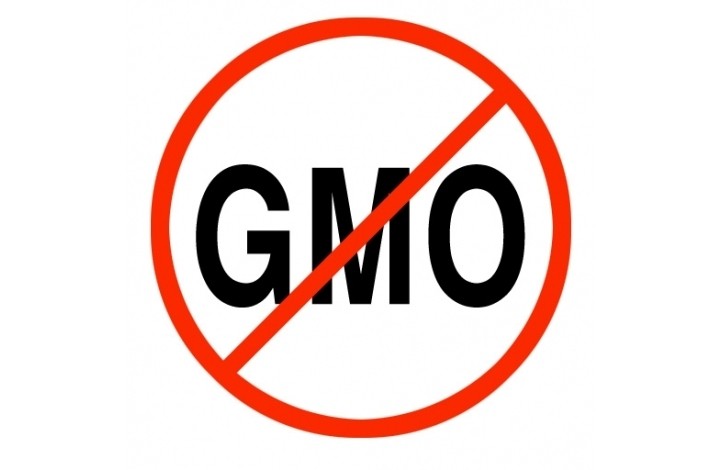
The non-GMO food and supplement category is the fastest growing sector in the entire natural products industry, with non-GMO product sales recently surpassing $3.5 billion, but the opportunities are countered by the significant challenges of attaining non-GMO verification.
Loren Israelsen, executive director of the United Natural Products Alliance (UNPA), told us: “We sense that the issue is substantially more significant than dietary supplement companies think.
“There is not the practice of testing in-bound materials for GMO status. If you look at the core GMO crops and their derivatives, then it could be a difficult situation.”
Speaking at a recent seminar hosted by the UNPA, Robert Craven, CEO, Food State/ MegaFood told attendees that being a non-GMO supplement manufacturer is not easy.
“The standard is very high to play in the realm,” he said, “and the supply community is not there with us yet.”
‘Suppliers hold the key’
Michael Lelah, technical director at NOW Foods, said there is a tremendous need for education in the supply chain. “It would be great to bring suppliers to the table and have the conversation about how to fix this.”
On the consumer side, there is a huge amount of activity around campaigning for labeling initiatives, said Lelah. There are also State and retailer initiatives, he said, but the challenge is that awareness of Genetically Modified foods among many consumers is lacking. “Most consumers don’t even know how much GE foods they are consuming.”
Indeed, Courtney Pineau, assistant director, The Non-GMO Project, told attendees at the UNPA seminar that, consistently, people don’t know what GMOs are.
Figures from 2011 indicated that 88% of corn, 94% of soy, 90% of cotton, 96% of sugar beet, and 90% of canola produced in the US was genetically engineered, said Pineau. Other GM crops that are grown commercially include alfalfa, Hawaiian Papaya, zucchini, and summer squash.
Estimates from the Grocery Manufacturers Association (GMA) put the presence of GMOs in more than 75% of conventional processed food. “That’s an old figure,” she said, “and I would imagine that this is a very conservative number.”
NOW Foods has set for itself the target of having its entire food line being non-GMO by the end of 2013. Dietary supplements are more complicated, said Lelah, and the company is working on this category-by-category.
“Suppliers hold the keys. They certainly can incorporate non-GMO certification into their ingredient process. But they currently have little incentive to do that,” he added.
“The supply chain for ingredients cannot convert overnight, and it’s really hard for brands to explain this to consumers.”
Non-GMO Project
Craven said he “loves” the standard set by the Non-GMO Project. “I think it’s absolutely the right standard.”
Despite MegaFoods having their own non-GMO seal on numerous products, the company only has Non-GMO Project verification on a handful of products.
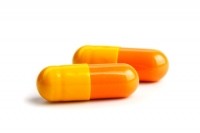
“We have zero chance to get some of our products certified by the Non-GMO Project,” he admitted.
Achieving verification is not easy at all. “The complexities around this are significant. The amazing growth in the non-GMO seal is huge and it’s putting undue pressure on supplements, because we are not there yet.”
Retailers are questioning why 100% of a company’s products are not certified, and this causes undue pressure because retailers just want to be able to point to a seal, he said.
Seals
So will we see a proliferation of non-GMO seals on products, like we see with GMP seals, kosher, and organic? NOW Foods’ Lelah thinks that is a possibility. “The Non-GMO Project verification sets a very high standard,” he says, “We may see varying standards with different seals in the future.”
MegaFood’s Craven added: “I’m not advocating a less rigorous standard. We’re advocating a phased approach so our supply chain can catch up. We need to recognize the complexities as they relate to supplements. We encourage our suppliers to get certified.
“While I love the rigorous standard, I like to take a step back and ask about the ultimate goal? Is it to have no GMO at all tomorrow? Or is it to make a move away from the GM approach to agriculture? Agriculture that is better for the world and better for the people who consume the food.”
Both Lelah and Craven noted that there is a significant difference in the complexity between food and supplements, with some supplement formulations containing very complicated blends.
There is also the quantity issue, said Lelah, with foods eaten in much larger quantities than supplements.
Excipients

While many dietary supplement formulations are complex, Sandy Kepler, CEO of FoodChain Global Advisors, noted that the biggest challenge for supplement manufacturers is the standardization materials (excipients). “They take a low risk material and turn it into high risk,” she said.
Excipients like maltodextrin or citric acid pose problems because of high risk precursor raw materials. Citrates also pose concerns for producers of mineral chelates ingredients. A way around this is to source citric acid from corn and sugar beet from GMO free zones, said Kepler.
In addition to the excipient challenges, there are also GM risks relating to micro-encapsulation with gelatin or corn starch. “You could start with a low risk nutrient, like lycopene from tomato, and add in 5 layers of GMO risk,” she said.
Vitamins and beyond
Vitamins, she said, are a very interesting piece of work. The vitamins that pose no risk include biotin, folic acid, B6, B1, K1, niacinamide because they are not products of fermentation. The issue with fermentation, she added, is that a lot of the feedstock for microorganisms is from GM crops, such as corn and sugar beet. Nutrients produced via fermentation include B12, B2, ascorbic acid, beta-carotene. Soy-based tocopherols are not from fermentation but much is extracted from GM corn, she added.
NOW Foods’ Lelah added that vitamin E is also an issue for fish oil. “The fish are non-GMO,” he said, “but there is usually between 10 and 30 IUs of vitamin E as a preservative, and much of that can come from soy. As an industry we need to find non-GMO alternatives for all ingredients”
Kepler said that other nutrients of note include whey proteins (“We have not been able to able to find an organic whey from cattle,” she said), and vitamin D3, which is generally produced from lamb’s wool. “Ultimately, a company will have to get statements around cloning,” she said. “Switching to D2 has been considered by some companies.”
Documentation with such ingredients can be challenging, said Craven. “Some of the time the supplier you’re dealing with is having to draw up completely new documents. You’re calling up your vitamin D3 supplier to ask for proof that the sheep are not cloned. He doesn’t have that kind of document lying around.”
Capsules, probiotics and pricing
Veggie capsules derived from wood/ HPMC are low risks, said Kepler, as are Pullulan Caps, which are produced by fermented tapioca starch using non-GM aureobasidium pullulans.
Another area of concern for the non-GMO folks is probiotics. The microorganisms themselves are non-GMO, she said, but what about the substrates? These are often based on corn. Switching out substrates can pose an R&D challenge because this is often linked to the quality of the product, she added.
“Probiotic suppliers are examining how to be Non-GMO Project verified,” said Kepler, and one large supplier is reported to be in discussions.
Enzymes
The topic of enzymes is incredibly complicated, and enzyme manufacturers have spent decades developing and perfecting their fermentation processes and many view these processes (including the growth media) as proprietary, explained Hope Hanley, VP of regulatory and scientific affairs for Deerland Enzymes, a supplier that has been hailed as having an excellent grasp of the non-GMO issue.
“However, the growth media and any other component used during fermentation needs to be disclosed in order to verify compliance to the non-GMO project standard,” she said. “Since many enzyme manufacturers consider them as highly confidential, they are reluctant to share this intellectual property with their customers," said Hanley.
“Furthermore, because the fermentation process has been so specifically designed over the years, any changes to this process will affect yield and consistency and create a significant burden on the manufacturer.
“In the case of enzymes, manufacturers will validate that non-GMO microorganisms are being used to produce the enzymes, but verifying the identity of the fermentation media is difficult.”
Integrity
Hanley added that there is not an incoming raw material test for enzyme preparations to determine if genetically modified organisms are used, since enzyme preparations do not contain genetically modified DNA.
“We must rely on the integrity of the industry to provide accurate documentation verifying GMO status.”
Even if a company were able to custom formulate the growth media for fermentation based solely on the criteria for the non-GMO project standard, she added, the raw materials aren’t widely available and it is difficult to meet the supply needs.
“The raw materials prices are significantly higher and would therefore affect consumer prices.”
“These challenges are not insignificant,” said Hanley. “Because there are so many factors to consider when evaluating fermented ingredients such as enzymes, it’s critical for ingredient manufacturers and members of the non-GMO project community to work hand in hand to find the most reasonable, pragmatic approach to define and meet the non-GMO standards.”
Sharing information and the Chinese conundrum

Alternative sourcing for many ingredients is possible, but NOW Foods’ Lelah also noted the price issue, which for value brands is a considerable challenge. “Some ingredients triple in price if they are GMO versus non-GMO,” he said.
MegaFood’s Craven also noted that language issues with foreign suppliers are a consideration.
“Sometimes we have to ask suppliers to get the documentation, and sometimes they have to then go and talk to their suppliers to find out where the ethanol is coming from for an extraction, for example. We’re a small company. We cannot just snap our fingers and make this happen,” said Craven.
“Sourcing from China is very interesting,” admitted Lelah. “For supplement companies, there are a lot of vitamins, minerals, and amino acids coming from China.”
“Based on the official Chinese position that genetically engineered crops are not authorized for food use, you have a full line of ingredients that are non-GMO. But for many in the US, sourcing from China is not perceived to be a good thing.”
“This could be an opportunity for China.”
Industry is not ‘seaworthy’ yet
UNPA’s Israelsen said that the dietary supplements industry is not yet seaworthy in terms of preparedness for the potential on-set of GMO labeling.
“The apparent level of readiness is low, but this will change fairly quickly, I think,” he said.
During the recent UNPA-hosted seminar in Salt Lake City, Israelsen discussed the value of compiling a list of suppliers with non-GMO verified ingredients, which he described as a “fairly big task”.
“We are looking for collaborators to work on this in tandem,” he added. “The seminar was a good start in forming the kind of relationships we need to begin doing this.”
There is also the issue of how the industry aligns GMPs compliance and non-GMO verification, he said, and that is another project for UNPA.
“We will be working with the Non-GMO Project and others on this, and the goal is to look at section 111, 117 and Non GMO verification requirements side-by-side, and see how these align. We see this as a central means to bring the supply chain and GMP procedures into a higher state of compliance and as cost effectively as possible.”
